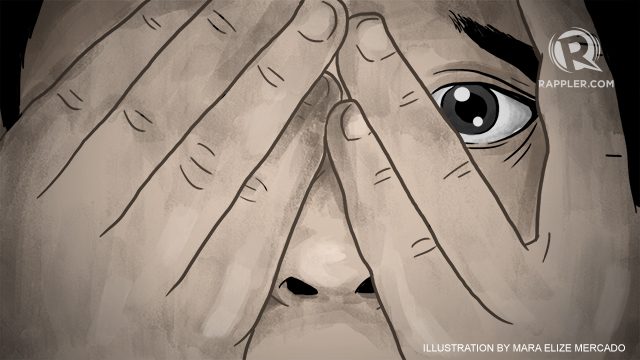SUMMARY
This is AI generated summarization, which may have errors. For context, always refer to the full article.

We’d like to think it is love because it makes for a great triumphant human story but it is not. When fossils of humans are found, like when researchers found Shanidar 1, his bones showed signs that they could not have survived if someone else did not not take care of him. There, we get real evidence that could punctuate the natural history of love or compassion. But long before we learned how to care for others, we had to learn the tricks of survival and those were mined from our more ancient, more deep-seated emotion – fear.
Now, in the modern age, even if we no longer routinely run away from larger beasts chasing us so we could be their happy meals, and we have figured out ways to foil the natural dangers that heights and depths pose to us, we remain to be fearful creatures. Fear is so basic, so primal that it can be a channel to change our own stubborn ways. And the proof?
A recent study on the appeal of fear, the biggest ever, yet, has concluded that messages that appeal to our fears, in order to persuade us to change our intentions, attitudes and behaviors, do work. Those who have been against scare tactics have always said that messages that use fear are too negative and that they backfire. But as far as this big study goes, messages that appeal to fear are really able to move audiences to change their minds and that there seem to be no grim consequences caused by the negative appeal.
These “scare tactics” are often used in political and health campaigns. The most famous ones of course are the anti-smoking campaigns. Ads containing an actual photo of one’s lungs or other body parts, sickened by smoking have been a staple in many campaigns around the world. They have been doing this ever since, even before the proliferation of images with the Internet. I remember when I was about 10, I wrote a very long letter of appeal to my parents who both smoked then (they were baby boomers so that was an in-thing for them then). I cited all the bad things that could happen to their insides and also to the lungs of their kids. It worked.
Is fear enough or do we need to add more reasons to fear in order to be effective? The study found that appeals to fear are even more effective when it shows what happens when you change your behavior. This means for example, that showing all the bad health effects of a life without exercise will make your audience want to get moving but it will work even better if you show people how easy it is to get into the exercise habit. There is also no additional benefit of adding another cause for their fear. One thing to be afraid of seems to be enough in a campaign.
What topics are more likely to scare us to change our ways? When you deal with topics that are more severe and show that we are more susceptible to it, the study found that fear appeal works even better. Again, we can use the example of smoking, given the danger it poses not just to the smoker but to the ones who inhale second hand smoke. This also means that my idea to remind smokers of the molecular nature of air (that it moves more freely than those in solid state so that a smoker also puts other lives at risk without their permission) would make for a lame campaign.
What if you want to change a one-time behavior? The study suggests that appeal to fear would work even better if you want to change a one-time behavior like getting vaccinated than a repeated one, like bad driving. It would also work with repeated behaviors but not as well. I guess it is because repeated behaviors are more ingrained, the connections are stronger and a surge of fear is probably not enough to overcome it.
How effective are scare tactics on male versus female audiences? Fear appeals work for both male and female audiences but more effectively for females. No one knows yet why.
And how about mentioning “death” in appeals to fear? Apparently, according to the study, it need not be sign of a desperate campaign that you mention “death” because it works effectively in scaring the pants out of your audience enough for them to reconsider their ways. “Death” works. Period. The end.
So we get it. Love may be the most sublime of all emotions but it seems that if you want to kick ass, recruit fear to do it for you.
But we should remind ourselves that the study says that fear works. It is not saying that it is always good to decide based on fear. Campaigns could take advantage of using our deep-seated emotion to make us subscribe to a service or buy a vitamin or vote for a president just because they will conjure for us a horrific scenario if we don’t. Of course, campaigns can also ask us to refrain from certain behaviors based on fear.
So the next time you see an ad scaring you towards a decision, force yourself to think about it more carefully. You will realize that when you don’t buy that bag, you won’t disappear from social grace. If you don’t take that vitamin, it will not be the end of your sex life. If you do not choose that president, it will not necessarily mean anarchy.
Believe this study or your brain cells will putrefy and decay (wink, wink). – Rappler.com
Add a comment
How does this make you feel?
There are no comments yet. Add your comment to start the conversation.